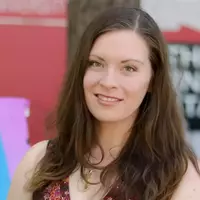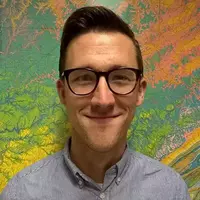Measuring and Increasing the Level of Inquiry in Science Laboratory Activities
Conveners
 Katherine Ryker, University of South Carolina-Columbia
Katherine Ryker, University of South Carolina-Columbia
 Jason Jones, North Carolina State University
Jason Jones, North Carolina State University
Commercially available lab manuals for introductory science courses are often devoid of authentic inquiry opportunities for learners (Buck et al., 2008). Inquiry-based activities have been empirically-shown to improve student learning and affect in lab settings (e.g., Chaterjee et al., 2009; Ryker & McConnell, 2014, 2017), but many instructors may either not know about the benefits of bringing inquiry into the lab or not know where to begin the process of adopting it into their lab design/teaching. This workshop will a) inform participants about the methods for measuring the level of inquiry in lab activities; b) have participants share/measure their own examples of existing lab activities, and; c) help participants collaborate to design new inquiry-based lab activities for future use by demonstrating effective "before and after" models of redesigned activities.
This workshop is able to provide all of its eligible* participants a $250 stipend that can be used toward registration compensation for the two days of the workshop. Funding will be available to provide qualified* participants with the stipend unless they choose to waive it by contacting Katherine Ryker. Small travel stipends are also available on a needs-basis. To apply for a travel stipend, please complete the travel stipend application form by May 30. All stipends will be disbursed after the Rendezvous, provided you participate in the entire workshop.
*Please note that as these stipends are NSF-funded, to be supported by this funding, a participant must be either a U.S. citizen, a permanent resident, or in the employ of a U.S. institution. All participants are expected to participate in the entire workshop. If you are also receiving a stipend from the Designing Effective Lessons for your First Geoscience Course, the maximum total registration stipend award is $500. Also note that if you receive funding from this grant, that will count toward the $500 maximum travel stipend available from NAGT.
Overview
Lab activities are widely considered an important way to get students engaged in the process of "doing science." Since most college students will take a single introductory science course with a lab as part of their general education requirements, this makes K-12 and intro labs all the more important. So how do we do engage students appropriately in lab settings? One method is to make sure that lab activities align with the same types of processes that scientists actually engage in: formulating questions, collecting data, deciding how results will be reported, and coming to meaningful conclusions based on that data. Published lab manuals are often geared towards having students follow prescriptive instructions, which may undermine their perceptions of how science works. Lab manuals developed "in house" may more naturally contain higher levels of inquiry (e.g. formulating a question), but there are usually still opportunities for us to be more systematic about how we get students applying scientific process skills. Additionally, as authentic inquiry utilizes students' own curiosity and individual skillsets, it can help to "level the playing field" to create a lab experience that is more equitable for all students.
We will discuss different ways to measure the extent to which scientific inquiry is part of our own labs, as well as strategies to improve the incorporation of inquiry-based activities. Participants will have opportunities to share out what has worked best for them, and to discuss some of the challenges of asking introductory students to engage in higher order inquiry skills (e.g. formulating a question). All participants will leave with specific ways to increase the inquiry level of a lab (or lab sequence) of their choice.
Audience
This workshop is designed for anyone involved in the teaching of introductory geoscience labs, whether you are (for example) a graduate teaching assistant (or will be in the future!), a faculty member teaching or overseeing labs, or a K12 teacher thinking about how to scaffold students' thinking about science!
Goals
By the end of this workshop, participants will be able to:- characterize the levels of inquiry present in sample lab activities in geoscience and related disciplines, and identify specific strategies to increase the inquiry level of their own lab activities
- create a plan to revise existing labs to increase opportunities for student inquiry
- discuss the training necessary for Teaching Assistants to teach inquiry-based labs appropriately
Format
Day 1: Features and benefits of inquiry-based activities; methods for identifying the level of inquiry in lab activitiesDay 2: Redesigning a lab activity to be more inquiry-driven; consideration of "before and after" examples; training TAs to teach inquiry labs
